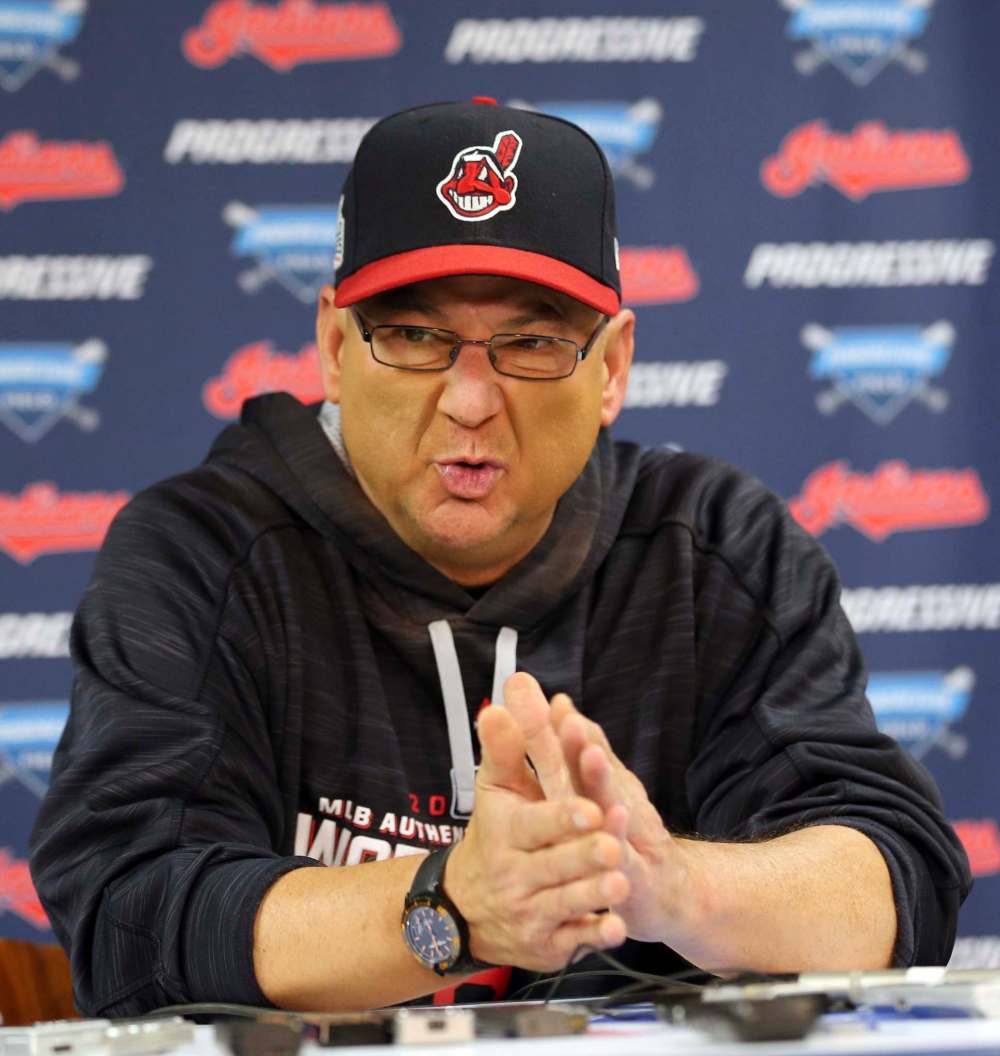Offensive team names have to go
Advertisement
Read this article for free:
or
Already have an account? Log in here »
To continue reading, please subscribe:
Monthly Digital Subscription
$19 $0 for the first 4 weeks*
- Enjoy unlimited reading on winnipegfreepress.com
- Read the E-Edition, our digital replica newspaper
- Access News Break, our award-winning app
- Play interactive puzzles
*No charge for 4 weeks then billed as $19 every four weeks (new subscribers and qualified returning subscribers only). Cancel anytime.
Read unlimited articles for free today:
or
Already have an account? Log in here »
Hey there, time traveller!
This article was published 24/10/2016 (2739 days ago), so information in it may no longer be current.
Cleveland is now in the World Series, and deservedly so. The Ohio city’s baseball team defeated the Toronto Blue Jays handily in the American League Championship Series and now shifts focus to the Chicago Cubs.
But here’s another question: should the “Indians” be competing in Major League Baseball’s fall classic?
Cleveland’s MLB franchise is one of several North American sports teams, at both the professional and collegiate levels, that continue to employ nicknames and logo designs based on a caricature and stereotyping of indigenous people. The name “Indians” speaks for itself; the team’s logo is a crudely drawn, crimson-faced native American who goes by the name Chief Wahoo.

The continued use of Indians as the name of a professional sports team and as an adornment for jerseys, hats and a seemingly unlimited number of MLB-licensed trinkets and souvenir items is as troubling as it is tiresome. In 2016, this is an issue that should have long since been laid to rest.
Cleveland’s MLB franchise is, of course, far from the only major sports team still employing what many indigenous commentators describe as flat-out racist names and imagery. Atlanta has its Braves; in professional football, Washington has the Redskins, Kansas City has the Chiefs, and the Canadian Football League’s Edmonton team continues to call itself the Eskimos. In hockey, of course, Chicago’s Blackhawks display the face of a native American man as their jersey-front crest design.
The most commonly repeated defence of these antiquated and disrespectful monikers is they’re a celebration of the nobility and courage of indigenous peoples. That is, quite frankly, pure hogwash. Names such as Indians and Eskimos and Chiefs — and, most egregiously, Redskins — are a continuing exercise in cultural condescension which, whether intended or not by those who continue to support them in the 21st century, reduces an entire segment of society to a demeaning and (sometimes literally) cartoonish stereotype.
In a recent interview with TVOntario, indigenous broadcaster and pop culture commentator Jesse Wente rightly pointed out the irony of those who defend the nicknames and logos as celebratory and respectful being part of the same patriarchal tradition that spent more than a century literally punishing native people for trying to preserve and practice their own cultural ceremonies and traditions.
Simply put, it isn’t up to white society to decide what amounts to a respectful celebration of indigenous cultures or peoples.
Another response commonly employed by those who defend the continuing use of racist sports-team identifiers is, “It’s just a name,” and all the fuss and bother is overblown. If it really is “just a name,” Wente counters, “then change it.” Other teams, most notably in the U.S. college ranks, have done so without any noteworthy damage to fan support and/or merchandise sales.
The only thing preventing sports teams from dropping these outdated and inappropriate nicknames is an unwillingness to change that is deeply rooted in cultural stubbornness and financial greed. The solution is easy, and the list of alternatives available to each team is almost limitless.
As baseball’s 2016 campaign heads toward its best-of-seven conclusion, it’s also time to bring the broader sporting world’s never-ending season of tone-deafness to an end.
History
Updated on Tuesday, October 25, 2016 8:27 PM CDT: edited


